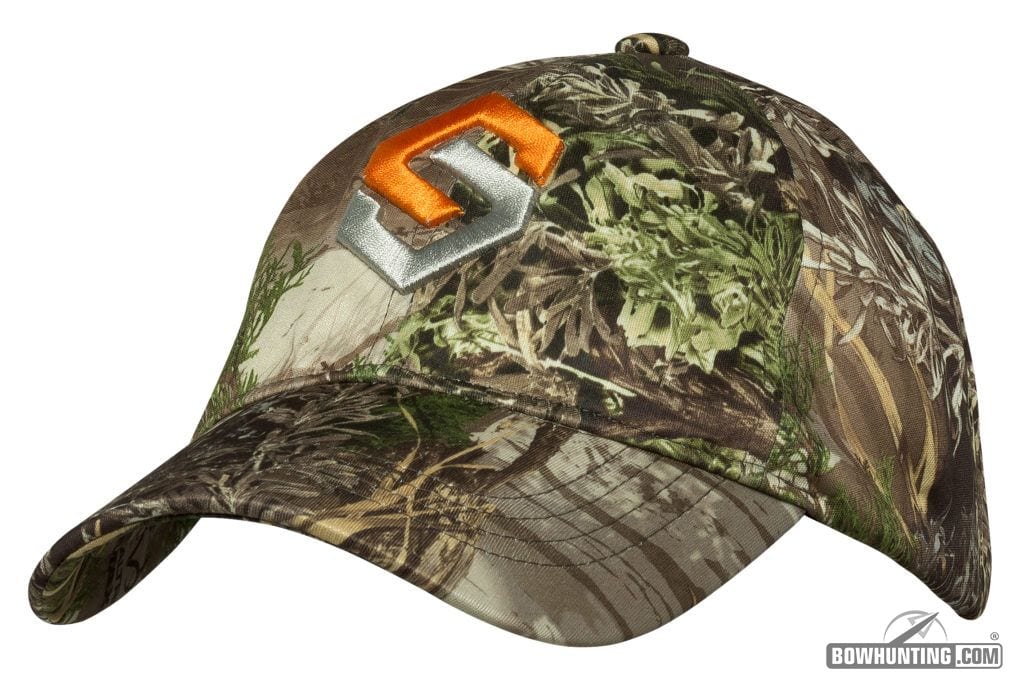We continue with part 2 of our series, Bowhunting on a Budget, with a focus on one of our favorite topics…Gear.
Some bowhunters are all about gear, and believe me, I like it as much as anyone. However, I realize that gear alone won’t bring me success. As I recall successful past bowhunts, I’m reminded that it wasn’t a high-end bow, a certain gadget or accessory that made me successful. Instead, it was my decision-making capabilities, my God-given skills to set up in the right location and know my equipment, and sometimes going with a hunch. Still, there are essential gear items that smooth the bowhunting experience through efficiency and effectiveness.
How Much is Too Much When Bowhunting on a Budget?
Of course, today’s market is full of equipment designed to make us better hunters. To some degree, gear and accessories do contribute to a more effective hunting regimen. However, we all must face this question: When it comes to gear, where do we draw the line? How much is too much?
Personally, I prefer a solid combination of simplicity and functionality. For me to feel absolutely deadly, I need certain items on me or within easy reach while bowhunting. Other items, I feel, would only hinder my effectiveness.
Below, I’ve outlined several affordable, must-have items I don’t hunt without. Let’s discuss these items and why I feel they’ll make you a deadlier bowhunter.
Rangefinder
Those who bowhunt whitetails or black bears over bait placed within 20 yards have little need for a rangefinder. However, I rarely hunt this way.
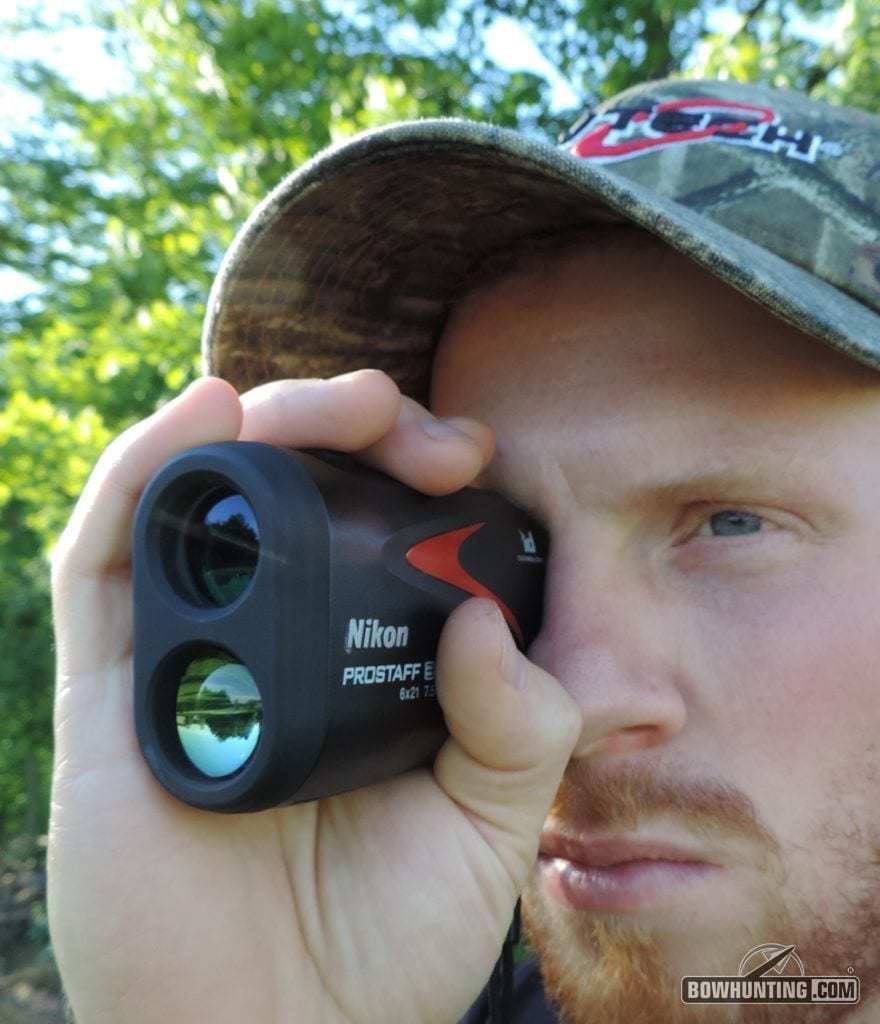
Rangefinders can be expensive, but several manufacturers offer them affordably. The author believes using a rangefinder is not only beneficial, but it’s the responsible thing for bowhunters to do. It gives you the confidence of knowing – not guessing – how far your shot is.
More often, I’m chasing elk or mule deer through public lands where variables – like shot distances – abound. Or, I’m situated on a whitetail runway where trails crisscross at various distances. When I’m presented a shot, I need to know the exact shoot-for distance, especially when shooting at a steep incline or decline.
Some bowhunters reason that a rangefinder is “just one more thing to hang around your neck,” or that operating one “is just one more step that could prevent a shot opportunity.” These are valid complaints, but in my opinion, they don’t trump the payoff, which is confidence in knowing – not guessing – shot distances, especially in unfamiliar hunting haunts where variables abound.
There are simple ways to solve the complaints I referenced. First, many hunting-clothing manufacturers include a rangefinder pocket on the chests of their bowhunting jackets. This not only takes the moderate weight off your neck, but also keeps the rangefinder away from your bowstring at full draw as you maneuver and shoot. To solve the other dilemma of the added step and movement required to operate a rangefinder, become proficient at estimating yardage at closer ranges where arrow trajectory has minimal impact on arrow placement, saving your rangefinder for longer shots where you shouldn’t be guessing and shooting anyway. Even better, if you’re hunting from a treestand, ground blind or other stationary ambush, pre-range objects all around you and commit them to memory. Then, if you cannot afford the extra time and movement to operate your rangefinder, simply recall your earlier readings, draw and shoot.
Calls
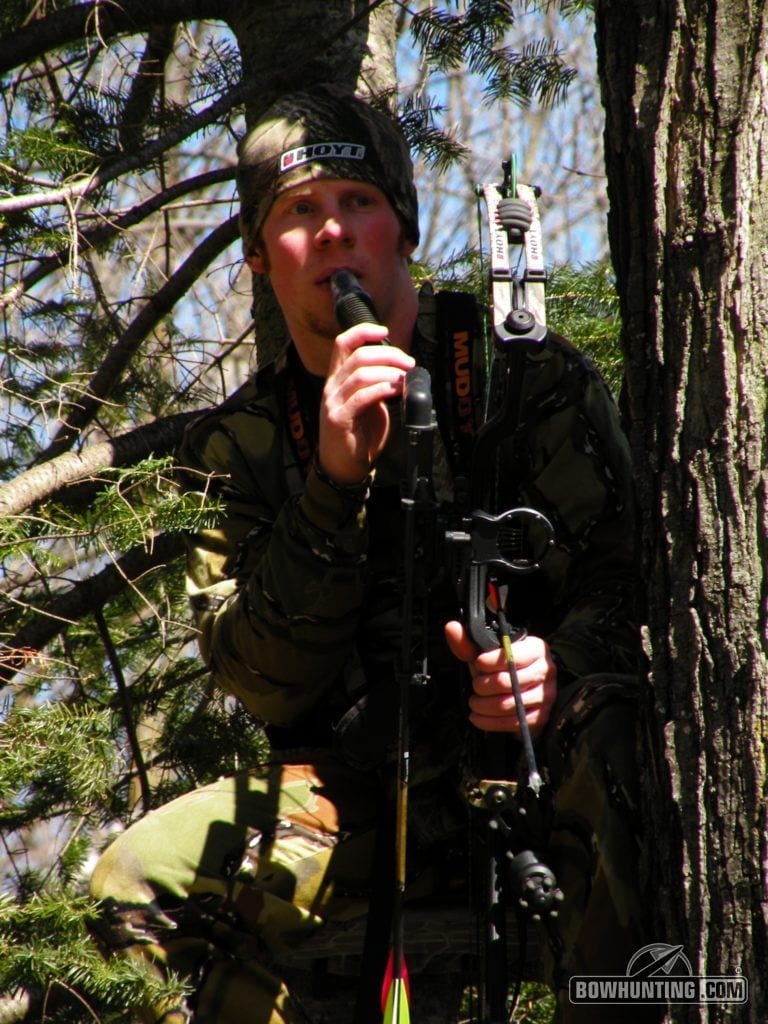
Calls need not break the bank or your neck. Choose a couple quality calls, use them sparingly, and don’t run out and buy new ones when your existing calls aren’t triggering responses. Remember, animals must be in the right frame of mind to respond to phony vocalizations.
I rarely hunt without calls, regardless of species and timing. I once grunted in a public-lands buck on September 30, and I’ve rattled and snort-wheezed bucks into range during October before real rutting kicks off.
I’ve also bugled in bull elk on public lands where veterans told me a bugle tube would only send bulls on a dead run away from me. My point? Calls work, and they’re good items to carry, because you simply never know what scenario you’ll find yourself in.
Understand, though, that calls are often best in moderation. That goes not only for using them, but also for the number of calls you carry along on each hunt. Variety is never a bad thing, but honestly, it’s senseless to stuff your pockets full or hang a half-dozen around your neck. Not only is this cumbersome, but the temptation to use them can cause you to overcall. When certain game animals get fired up, they may respond to aggressive calling, but sometimes the excess noises only alert game that your vocalizations are phony and unnatural. Try to keep it real, and don’t buy a new call each time your existing ones don’t yield responses.
Clothing
Camo clothing is obviously essential, unless you’re hunting from a ground blind’s blacked-out confines.
A brimmed hat keeps rain and sun off your face and out of your eyes. Often inexpensive, it’s a good accessory to have.
However, extracurricular apparel is up to the individual bowhunter. The first article that comes to mind is a facemask. I usually only use one when hunting elk or turkeys at ground level. My facemask is thin and doesn’t interfere with my accuracy or shooting in any way. I determined this well before hunting with it. Other hunters prefer the “naked” approach, using face paint in lieu of face masks.
Of course, hats and gloves are other inexpensive accessories sometimes necessary for a comfortable hunt, and they must be fitted and functional so they don’t mess up your shooting performance. Nope, department-store closeouts won’t cut it. I’ve used hats and gloves from a number of manufacturers, but the ones from Scentlok (scentlok.com) and Sitka Gear (sitkagear.com) are tough to beat for quality and bowhunting functionality.
Daypack
While I prefer a lightweight approach, I almost always carry a small backpack with essentials (food, water, knives, camera, game calls, flashlight, gutting gloves, etc.). I like to be prepared for every possible scenario, and being a writer, I don’t hunt without my camera. A backpack allows me to carry these items in organized fashion.
Backpacks for day hunts are quite affordable. Look specifically for one with functional pockets for organized storage. This simplifies things when you’re searching for items in your pack, especially in the dark. Manufacturers to consider are Scentlok (scentlok.com), Tenzing (tenzingoutdoors.com), Sitka Gear (sitkagear.com) and Alps OutdoorZ (alpsoutdoorz.com), among others. Of course, you’ll want to spend more if you’re trekking into elk country, but a simple daypack is sufficient for daylong deer or turkey hunts.
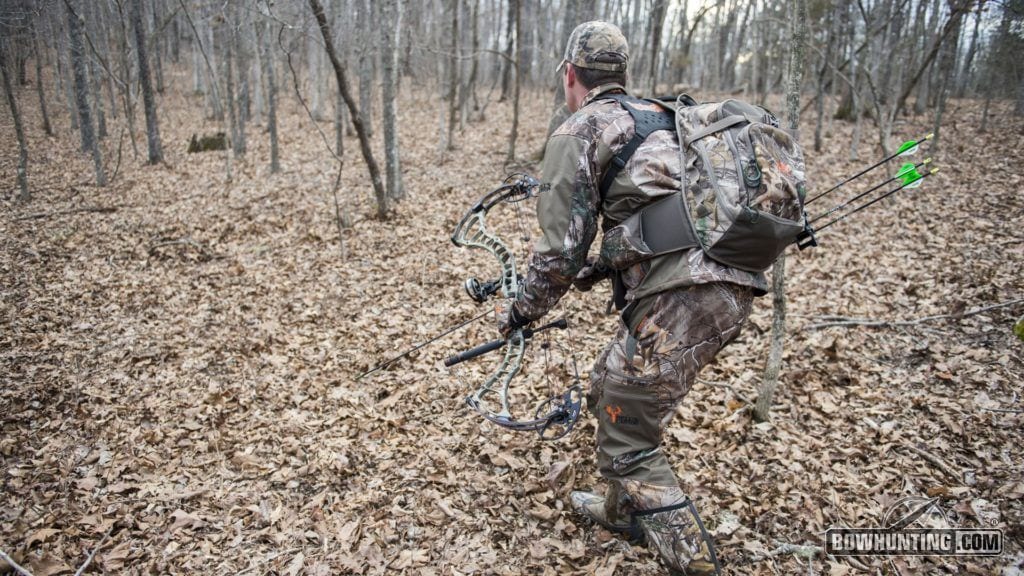
An inexpensive but functional daypack helps you carry and organize essentials such as food, water, knives, game calls, gutting gloves, etc. (Photo credit: Alps OutdoorZ)
Bow Hoist and Hanger
Rather than climb a tree with your bow slung over your shoulder, employ a retriever line to safely pull it up once you’re in your stand and strapped in. This can be a simple rope, but for the run-and-gun hunter, a reel-style retriever saves hassles by eliminating tangles. Also, don’t forget to pick up a bow/accessory hanger. This allows you to hunt with your hands free so you can operate calls, check the weather on your smartphone, or glass your surroundings through binoculars. Not only do these two accessories make you more efficient, but they’re cheap and easily carried to and from the woods. Check out www.huntersafetysystem.com for some great options in this category.
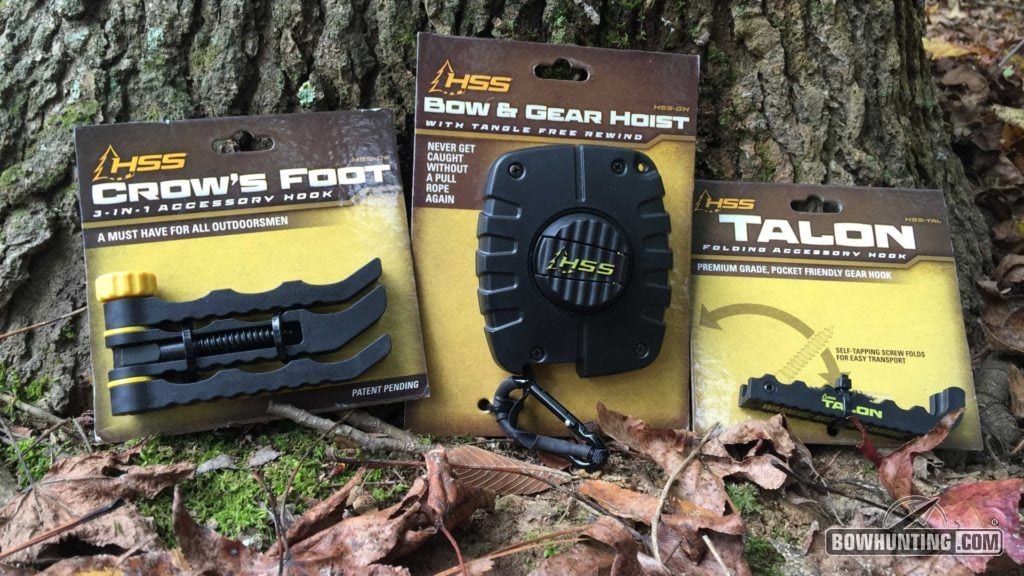
Do you have the tools to make life in the treestand easier? Check out these new and affordable options from our friends at Hunter Safety System.
Conclusion
The market is full of gadgets designed to make us better hunters. However, we’d all look like models who walked off the pages of a mail-order sporting-goods catalog if we bought each and every one of them. Plus, blue-collar guys like myself would quickly go broke. However, there are essentials that some of us simply can’t bowhunt effectively without. If you’re missing any of the abovementioned items, consider purchasing them before this fall hunting season. They’re affordable accessories that contribute to more efficient, more effective bowhunting.

 By
By 